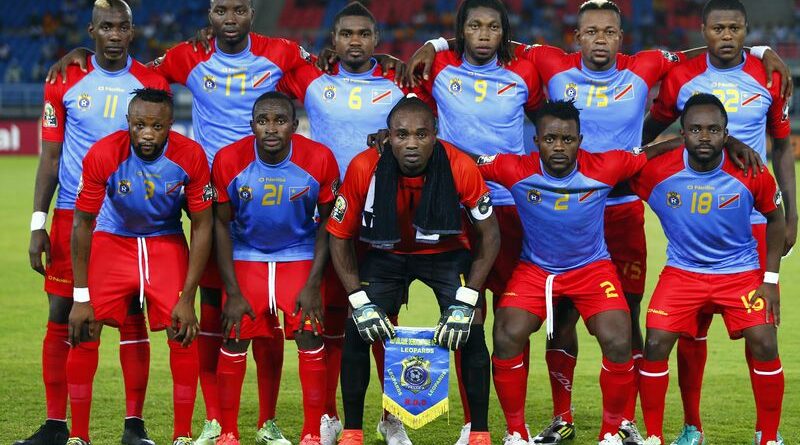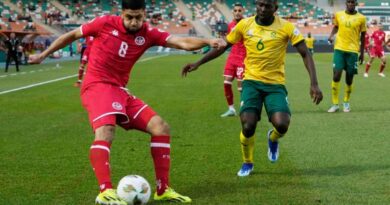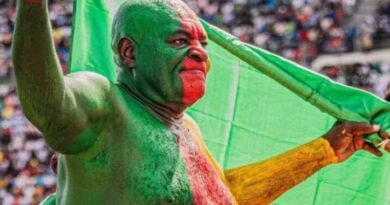Binewa Team Profile: DR Congo at TotalEnergies AFCON 2023
By Mwambo E. Lyonga

The Democratic Republic of the Congo, also known as Congo-Kinshasa, DRC, DR Congo, or simply the Congo and known from 1971–1997 as Zaire, is a country in Central Africa. By land area, the DRC is the second-largest country in Africa and the 11th-largest in the world. With a population of around 112 million, the Democratic Republic of the Congo is the most populous officially Francophone country in the world. The national capital and largest city is Kinshasa, which is also the economic center. The country is bordered by the Republic of the Congo, Central African Republic, South Sudan, Uganda, Rwanda, Burundi, Tanzania (across Lake Tanganyika), Zambia, Angola, the Cabinda exclave of Angola and the South Atlantic Ocean. DR Congo is an African football powerhouse. They made their AFCON debut in 1965 in Tunisia and qualified for the 1974 FIFA World Cup in Germany. The 1968 and 1974 champions have qualified for the tournament 19 times, winning bronze twice.
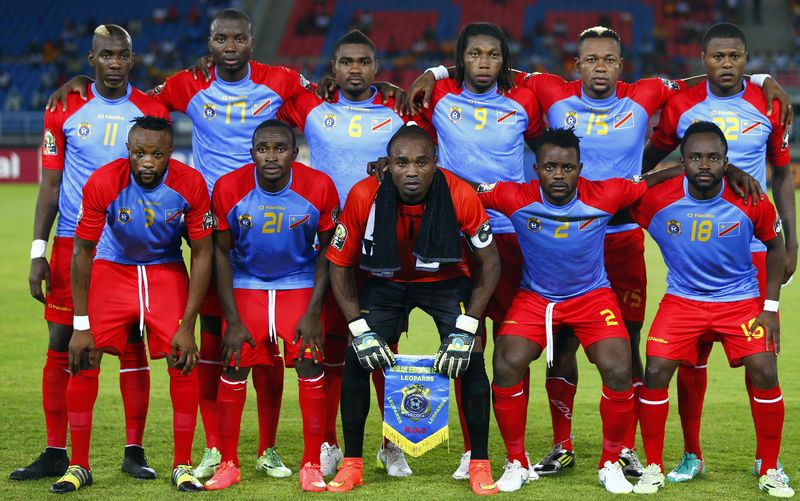
Team Bio
The Leopards of Congo announced themselves on the African football showpiece in 1965 in Tunisia as Congo Leopoldville . They lost both games in Group B, 5-2 to Ghana and 3-0 to Côte d’Ivoire. They bounced back in style in 1968 in Ethiopia, winning the ultimate accolade. They were drawn in Group B with Ghana, Senegal and Congo Brazzaville. They finished second in the Group despite losing 2-1 to Ghana, their wins against Congo Brazzaville(3-0) and Senegal (2-1) ensured them a place in the knockout stage for the first time in the tournament. They battled their way to the final with a 2-3 win after extra time against hosts Ethiopia. On January 21, 1968, DR Congo then known as Congo-Kinshasa were crowned African champions at the Hailé Sélaissé Stadium thanks to a Pierre Kalala Mukendi in that 1-0 win against Ghana.
They fell from grace to grass in the next tournament in Sudan and failed to make it out of the groups stage. In 1972 in Cameroon they improved and were ranked fourth. Zaire as they were known at the time were in Group B with Morocco, eventual winners Congo and Sudan. Draws with Sudan and Morocco and a win over Congo were enough to see them through to the last four as group winners.
They lost 3-4 to Mali after extra time in the semifinals and 5-2 to Cameroon in the third place classification game.
They drew the lessons and bounced back stronger in 1974 in Egypt were they were crowned champions for the second time with an unplayable Ndaye Mulamba.
A 2-1 win against Guinea, a 4-1 win over Mauritius were enough to see them through to the knockout stage despite losing 2-1 to group B winners Congo. They defeated Egypt 3-2 in the semifinals and Zambia in the final after a replay. Ndaye Mulamba carried the team on his shoulders with nine goals that helped them walk away with the ultimate accolade.
Just like after their victory in 1968 they failed to make it out of the groups stage in the 1976 tournament in Ethiopia.
They failed to qualify for the next three tournaments and withdrew from the 1984 tournament in Côte d’Ivoire and did not qualify for the tournament in 1986 in Egypt.
In 1988 in Morocco, they finished bottom of Group A behind hosts Morocco, Algeria and Côte d’Ivoire.
They failed to qualify for the 1990 tournament but reached the quarterfinals of the 1992, 1994 and 1996 editions. They bettered that performance in 1998 in Burkina Faso, finishing third. They were drawn in Group B with Tunisia, Ghana and Togo. Wins over Togo and Ghana handed them a spot in the quarterfinals. Jerry Tondelua’s 30th minute goal, his third in the tournament was all they needed to see off Cameroon at the quarterfinals. In the semifinals, Bembuana-Keve gave them the lead against South Africa, but two goals from Benni McCarthy, one in extra time handed South Africa the win.
In a very exciting third place game, they had the final word in post match penalties after a 4-4 draw with Burkina Faso in regular and extra time. A group stage exit in 2000 and three quarterfinals places in the next three tournaments followed. They failed to qualify for the next three AFCONs and only returned in 2013 where the failed to make it out of the group stage.
In 2015 in Equatorial Guinea, Dieumerci Mbokani inspired the Leopards to another third place finish. They finished second in Group B after three draws, against Zambia, Cape Verde and Tunisia. A 2-4 win against Congo Brazzaville in the quarterfinals thanks to a brace from Mbokani and goals from Bokila and Kimwaki helped them to the semifinals against Côte d’Ivoire. The Ivorian huddle proved to be one too high as they lost 1-3 to the eventual winners. In the third place game against Ghana, they came on top of an epic shootout on a 9-8 score line after both teams failed to score in regular and extra time.
A quarterfinals spot followed in the next tournament before bowing out in the round of 16 in 2019 in the first 24 nations tournament held in Egypt. They failed to qualify for the last tournament in Cameroon and will be hoping to make a big statement in Côte d’Ivoire.
The Journey
Despite losing their first two games to Gabon and Sudan, the DR Congo qualified as Group I winners with 12 points ahead of Mauritania with 10 points, Gabon with seven points and Sudan with six. The teams played against each other in a home-and-away round-robin format between June 4, 2022 and September 9, 2023.
CAF awarded DR Congo a 3–0 win as a result of Mauritania fielding an ineligible player, Khadim Diaw, after the match had ended in a 1–1 draw. Diaw failed to follow the proper procedure for switching national teams after previously representing Senegal during the 2020 African Nations Championship qualifications.
DR Congo and Mauritania, the group winners and runners-up respectively, qualified for the 2023 Africa Cup of Nations.
Earlier results
Game day 1
DR Congo 0-1 Gabon
Game day 2
Sudan 2-1 DR Congo
Game day 3
DR Congo 3-1 Mauritania
Game day 4
Mauritania 0-3 DR Congo (awarded)
Game day 5
Gabon 0-2 DR Congo
Game day 6
DR Congo 2-0 Sudan
Qualifications group
DR Congo 12 pts
Mauritania 10 pts
Gabon 7 pts
Sudan 6 pts
Players to watch
Cédric Bakambu
With two goals to his name in the qualifiers 32-year-old Galatasaray forward Cedric Bakambu will be the DR Congo’s most lethal weapon upfront in the 2023 AFCON in Côte d’Ivoire.
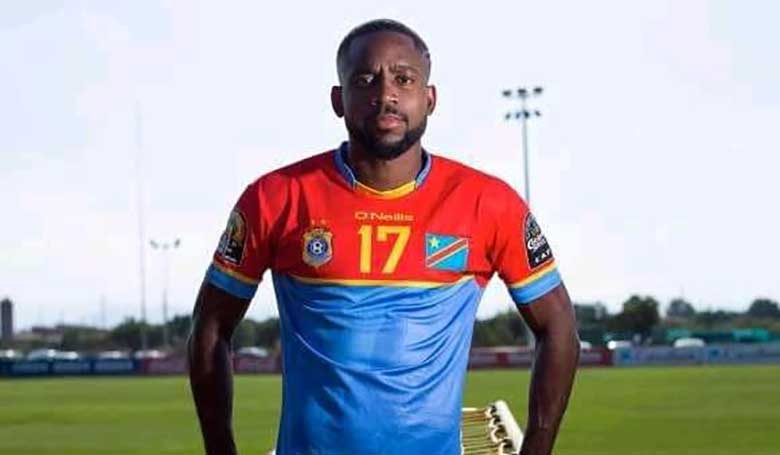
Bakambu made his professional debut for Sochaux in 2010, and played 107 official games for them over five seasons, scoring 21 goals. He then moved to Bursaspor for €1.8 million, finishing as top scorer as his team came runners-up in the Turkish Cup, before signing for Villarreal a year later. He has gone on to play for Beijing Gouan, Marseille, Olympiakos and Al Nassr before joining Galatasaray in 2023.
Born in France, he represented them internationally at youth level up to the under-20s, scoring eight goals in 38 games and winning the 2010 UEFA European Championship for the under-19s. In 2015, he made his senior debut for the DR Congo national team.
Fiston Kalala Mayele
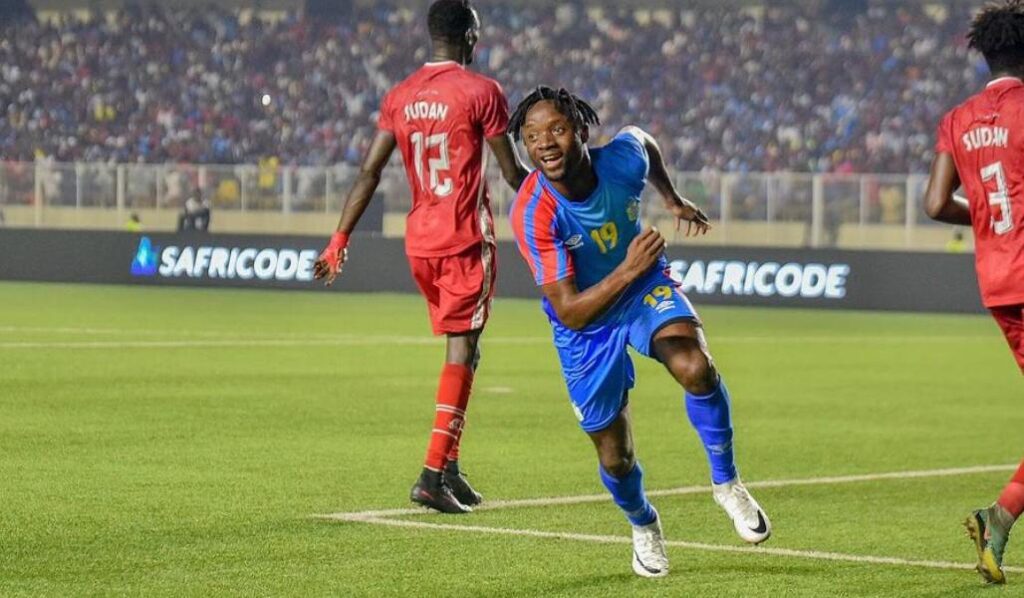
Fiston Kalala Mayele, also known as Fiston Mayele is a Congolese international forward who was born on June 24, 1994 and plays for Egyptian Premier League club Pyramids FC. Mayele who also scored two goals in the qualifiers was born in Congo, in the city of Mbuji-Mayi. His current club is the Pyramids FC (Egypt) which he joined in 2023 from Dar es salaam based Young Africans from Tanzania. He formerly played for, AS Vita Club (DRC) and Young Africans.
Gaël Romeo Kakuta Mambenga
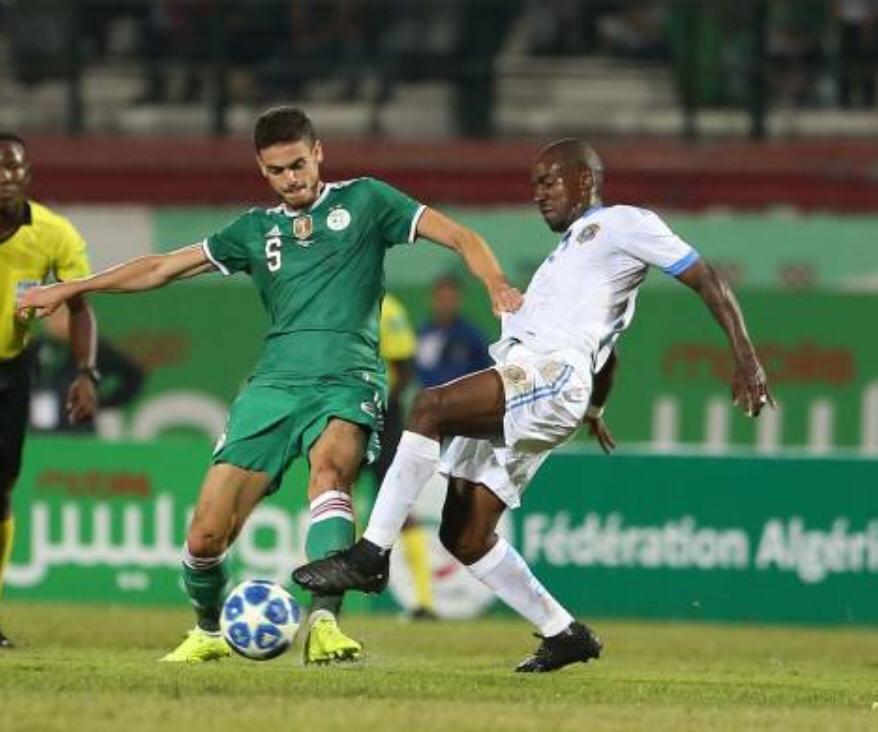
At the age of 32, the Amiens playmaker will be one of the key players for the DR Congo in Côte d’Ivoire. The much traveled player who has played for 14 clubs and now in a third spell with Amiens can decide a game all on his own.
A youth product of Lens, Kakuta moved to Chelsea in 2007 in a controversial transfer. Rarely used at Chelsea, he was loaned to six teams in five countries before leaving for Sevilla upon the expiration of his contract in 2015.
Born and raised in France, he was a French youth international and represented the nation at every age group from under-16 to under-21 levels, before switching allegiance to the DR Congo national team in 2017.
Meschak Elia
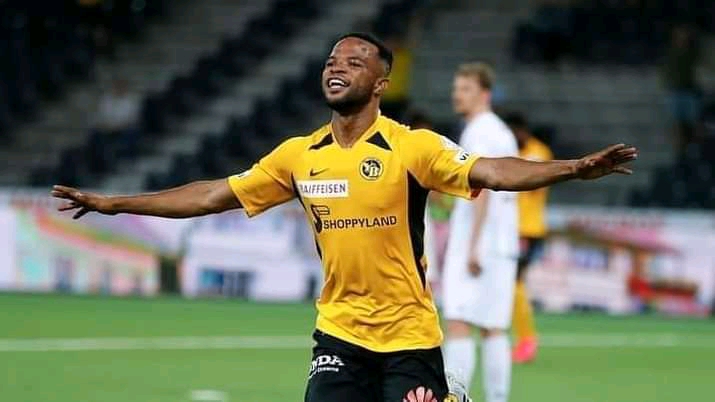
DR Congo’s Meschak Elia has been one of the most potent wide-men in the Swiss Championship where he has scored 5 times and assisted three times in 17 appearances. In the champions league with BSC Young Boys, Elia scored two times in 6 games. The 26-year-old former TP Mazembe man has scored 7 times in over 30 appearances for country. Watch out for his pace and trickery either as a second striker or winger.
Coach
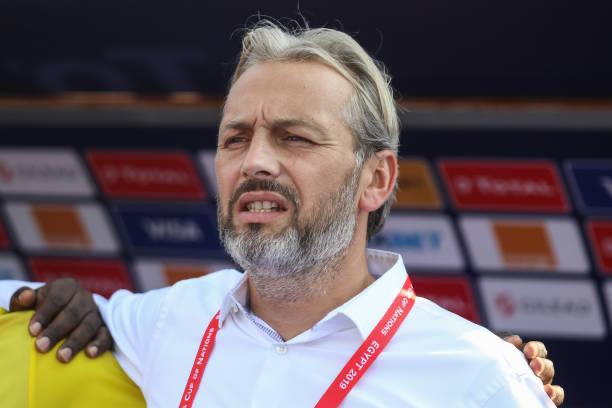
Sébastien Serge Louis Desabre
47-year-old French coach Sebastien Desabre is an African football expert. With coach spells with Wydad Casablanca in Morocco, starting with ASEC Mimosas in Côte d’Ivoire in 2010, then helping Coton Sport of Garoua to a Cameroon league title in 2013 before moving on to coach Tunisian giants Esperance Sportive du Tunis, JS Saoura in Algeria and Ismaily and Pyramids in Egypt, Desabre can be described as an African football expert. Before becoming coach of the DR Congo in March 2023 to get their AFCON qualifiers campaign back on track, Desabre had also coached the Ugandan national team from December 2017 to July 2019.
2023 AFCON matches Group F
DR Congo will kick-start its campaign against two time 2012 winners Zambia on January 17, and play against Morocco on the 21st and Tanzania 24th of January respectively.

